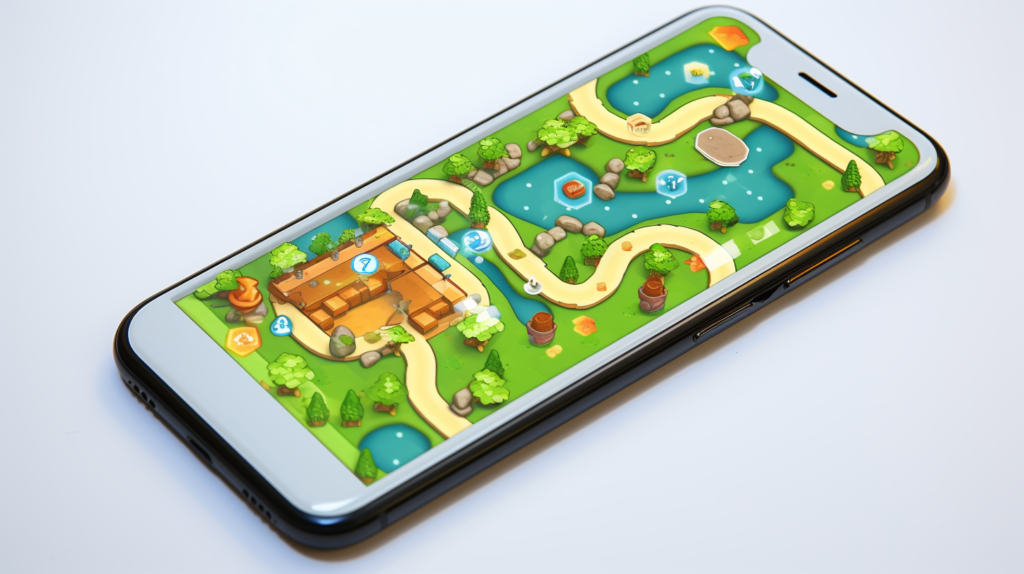Mobile gaming has taken the world by storm, with many people engaging in esports, playing casual games on their phones or tablets, and generally having a great time. However, there is a vocal minority of gamers who believe that mobile gaming is ruining the industry and that gamers are being hated. They see it as an unworthy substitute for “real” gaming platforms like PC and console systems such as PlayStation and Xbox — but why? In this blog post, we’ll take a look at why some feel so passionately against the mobile gaming movement and examine if their views have any real basis. Introducing an underlying question – are these criticisms simply rooted in elitism?
Origins of Mobile Gaming Hate
In recent years, we have seen an influx of mobile games flooding the app stores, but it seems that not everyone is thrilled about this new era of gaming. In fact, mobile gamers have quickly become the target of much online hate and criticism. The origins of this hate, however, are not entirely clear. Some speculate that it may be due to the perception that mobile games are too simple and lack the depth of traditional console and PC games. Others suggest that it may be rooted in the mobile game industry’s tendency to incorporate microtransactions and other monetization tactics into their games. Whatever the reason may be, it is important to approach mobile gaming with an open mind and recognize that it has the potential to offer unique and enjoyable experiences to gamers of all kinds.
Reasons Behind Mobile Gaming’s Bad Reputation
Mobile gaming has gained a bad reputation over the years, with many questioning its quality and legitimacy. It’s a phenomenon that truly bears examination. The fact of the matter is that mobile gaming is perceived in a negative light for a number of reasons. One of these is the prevalence of predatory microtransactions, which can often leave players feeling coerced or cheated. Additionally, many mobile games are seen as lacking in depth and complexity, with simple gameplay mechanics and reliance on grinding rather than strategic thinking. Lastly, there is the issue of screen addiction, as many mobile games are specifically designed to be addictive, making it hard for players to put them down. When you consider all these factors, it’s easy to see why mobile gaming has gained such a bad reputation.

Common Arguments Against Mobile Gamers Being Hated
Mobile gaming has become incredibly popular over the years, with millions of people around the world playing games on their smartphones and tablets. Despite its popularity, however, there are still many arguments against mobile gaming that are often brought up. Some argue that mobile games lack the depth and complexity of console or PC games. Others claim that mobile games are just a waste of time and that playing them doesn’t offer any real benefits. Still, others argue that mobile gaming is too addictive and can lead to behavioral problems. While each of these arguments has some validity, they don’t tell the whole story. Mobile games can be just as engaging and challenging as traditional games, and they can also be a great way to relax and unwind after a long day. Ultimately, whether or not you choose to play mobile games is up to you.
The Benefits of Mobile Gaming and How It Enhances Lives
In an age where smartphones and tablets have become ubiquitous, mobile gaming has emerged as a popular pastime for many. However, it’s not just about mere entertainment – it can also provide a number of benefits that can enhance people’s lives. For instance, mobile games can help improve cognitive abilities such as memory and problem-solving skills. Additionally, they can serve as a stress reliever after a long day at work. Meanwhile, the social aspect of mobile gaming – playing with friends or strangers – can help build connections and foster a sense of community. Overall, the benefits of mobile gaming extend beyond just having fun – they could potentially improve our mental and emotional well-being.
The Reality of Mobile Gaming and What it Means for Society
Mobile gaming has become an integral part of our daily lives, providing us with a convenient way to pass the time and stay connected with others. As society continues to move towards a more digital age, the reality of mobile gaming is becoming more apparent. With advancements in technology, mobile games have become increasingly sophisticated, allowing us to experience more immersive and engaging gameplay than ever before. However, this increased level of connectivity and interactive experiences also comes with its own set of challenges and potential drawbacks. It’s important for us to consider both the positive and negative impacts of mobile gaming, and continue to have conversations about how we can responsibly incorporate this technology into our lives.
Balancing the Pros and Cons of Mobile Gaming Culture
In today’s technological age, it is no surprise that mobile gaming has become prevalent in our society. With countless games and apps available at our fingertips, the convenience of mobile gaming has captured the attention of a wide audience. However, it is important to weigh the pros and cons of this culture. On the one hand, mobile gaming can improve cognitive skills and increase social connections through online multiplayer modes. On the other hand, it can also lead to addiction and excessive screen time, which can have detrimental effects on physical and mental health. Striking a balance between enjoying the benefits of mobile gaming while also being mindful of the potential risks is key. By being aware of the pros and cons, we can make informed decisions about our mobile gaming habits and ensure that they remain a positive aspect of our lives.
All in all, mobile gaming is here to stay and there is nothing we can do to stop it. As a society, understanding how mobile gaming affects our lives will help inform us as we make decisions about when and how we use the technology available to us. While some aspects of mobile gaming may be controversial, there are still many benefits associated with the technology that can improve and enrich lives. By balancing the pros and cons of mobile gaming culture, we can have a more meaningful dialogue about what role it should play in our society. We should remember that criticism should not impede innovation but rather serves as an opportunity for growth. It is only by understanding how to use these tools responsibly that we can truly reap their rewards.




